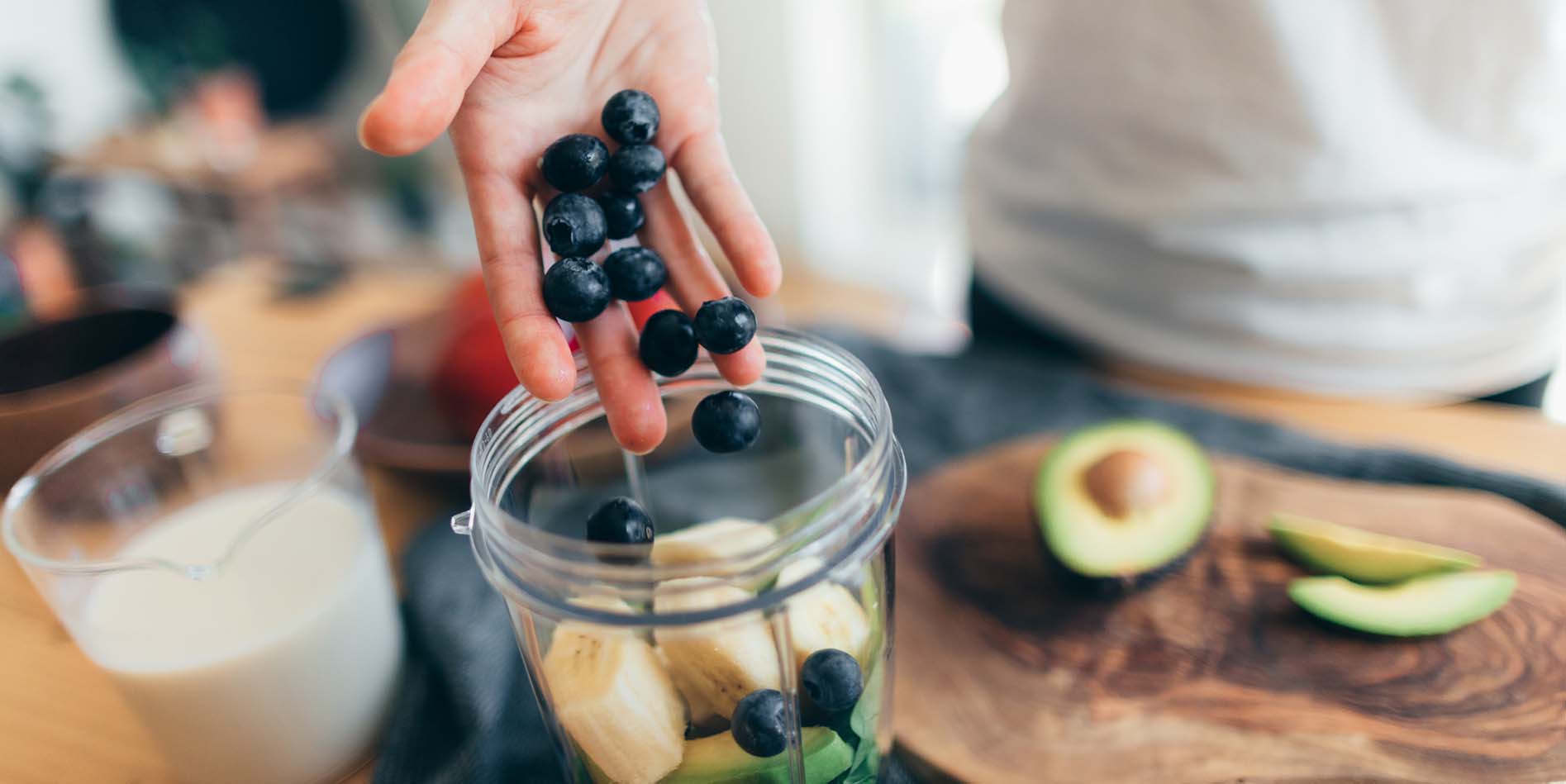Eating well for mental health
Mental HealthArticle26 October 2020
They say you are what you eat so it makes sense eating foods rich in goodness is going to help your wellbeing.
Mental health research backs up the idea of eating well and living a healthy lifestyle. Studies have shown a diet high in plant-based foods and omega 3 fatty acids, for example, can improve and regulate mood. Other research suggests brain disorders, such as dementia, are affected by diet.
“What we eat is one component of our behaviour (with others including physical activity, sleep and stress) that contributes to our physical and mental health,” says accredited practising dietitian and Dietitians Association of Australia spokesperson Natasha Meerding,
Good habits for mentally healthy eating:
Eat breakfast
Starting your day well is essential for keeping your mind happy and strong. “Eating breakfast each day can improve concentration, alertness and memory, and mental performance,” says Meerding.
Reduce mentally unhealthy foods
Added or refined sugar, saturated fat and salt aren’t good for your mind. Look to your work day habits to make changes. “Some of the regular workplace snack culprits, including chocolate, cakes, muffins, chips and soft drinks, lead to energy crashes, weight gain and lifestyle diseases like diabetes, heart disease and some cancers,” Meerding says. Cutting back on caffeine, energy drinks and alcohol is also important.
Increase mentally healthy foods
Meerding says the recommended foods in the Australian Dietary Guidelines include “plenty of vegetables, legumes, fruit, low-fat dairy, wholegrain breads and cereals, lean meats, chicken and fish, eggs, nuts and seeds.” She says it’s also important to look for low Glycaemic Index (GI) carbohydrate-rich foods for sustained brain energy.
If there’s one change to make, it’s adding more vegetables to your diet. Meerding offers the following advice:
- think about new and creative ways to eat vegetables;
- learn how to select and cook vegetables to help you get more into your day;
- have plenty of vegetables in your fridge;
- tinned and frozen varieties also offer valuable nutrients and can be convenient alternatives.
Eat well at work
The key to eating well at work is planning. “Pack a healthy lunch based on foods from the five food groups and remember to include snacks to avoid going for less healthy options when your energy levels slump,” Meerding advises.
Meerding suggests working with your team to make everyone’s work days healthier:
- work with a group of colleagues to create a more supportive, healthy eating environment;
- remove fundraising chocolates and biscuit tins and instead set up workplace fruit bowls with a donation tin;
- advocate for your workplace to adopt healthy catering policies for training and meetings.
Snack healthily
Snacks are the downfall of many otherwise healthy diets. Meerding says this, too, comes down to being organised: “Being prepared with healthy snacks avoids energy dips and helps you get in all the vitamins and minerals you need for the day.” It can be helpful to think of the five food groups when planning your day’s snacks:
- Fruit: a piece of fruit and a bag of cut up fruit or a bag of grapes;
- Vegetables: vegetable sticks and a vegetable-based dip, such as hummus or tzatziki, or an avocado on crackers;
- Breads and cereals: wholegrain crackers or a fruit bun;
- Meat and alternatives: a small container of raw or dry roasted nuts;
- Dairy: a tub of reduced fat yoghurt makes a convenient snack if you work somewhere with a fridge;
Other ideas: air popped popcorn, dried fruit and nuts, pumpkin and sesame seeds, vegetable pikelets, vegetable muffins, vegetable soup.
Eat well at home
Being prepared is the best way to incorporate a healthy diet into a busy life. Meerding suggests your home meals can be good for your mental health by doing the following:
- Plan ahead for the week during your days off and set a loose menu plan;
- Use your meal plan to do a big shop and stock the fridge and pantry with plenty of vegetables, lean meats and fish, tinned and frozen vegetables;
- If you have time, do a cook up on your days off, and freeze extra portions of dishes packed full of vegetables;
- Work on your repertoire of quick to prepare, healthy meals.
Need more help?
This is general advice and Meerding says “there is no one perfect diet that is suitable for everyone.” If you need some help creating a diet that suits your lifestyle, see an accredited practising dietitian.
For some great healthy recipes, visit the Dietitians Association of Australia and the Australian Healthy Food Guide.
Research:
- http://www.unisa.edu.au/Media-Centre/Releases/Mood-Food-Mediterranean-diet-linked-to-better-mental-health/#.VWY7TOvXcvA
- http://theconversation.com/you-are-what-you-eat-how-diet-affects-mental-well-being-27115
- http://www.eatforhealth.gov.au/news-media/translating-science-behind-eating-well-and-staying-healthy
This article was provided by SuperFriend, a national mental health organisation helping workplaces improve mental health and wellbeing for their employees and customers.



